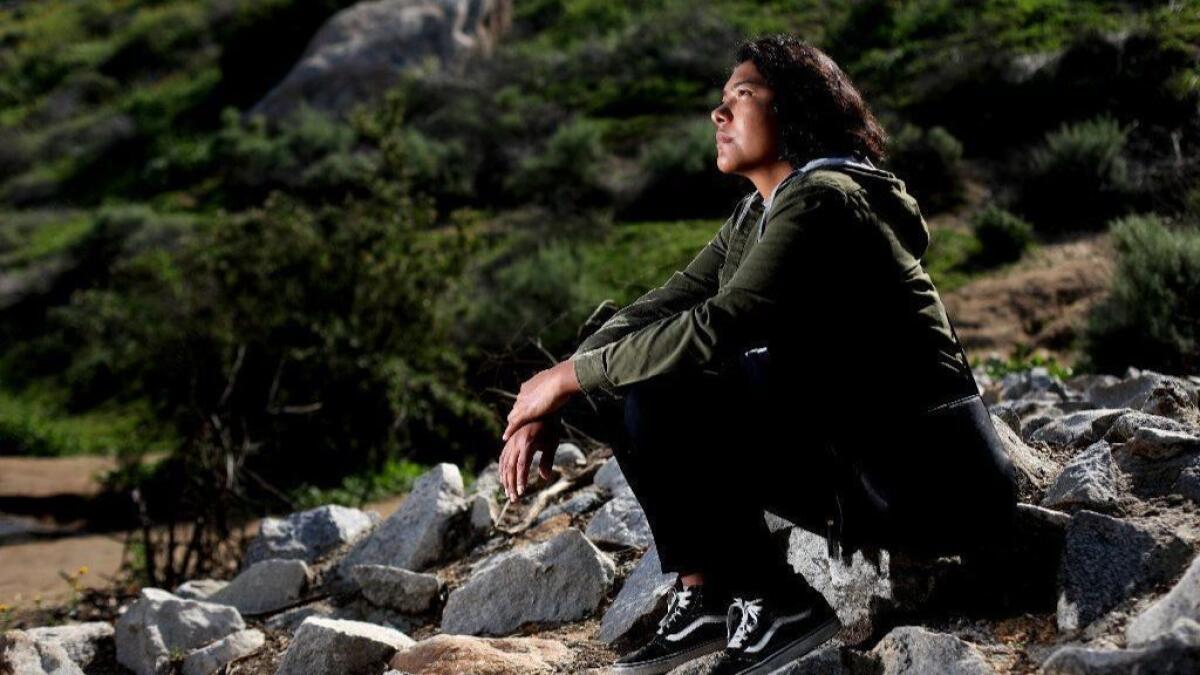Bill to ban cosmetic genital surgeries on intersex infants delayed. Doctors opposed it

Reporting from Sacramento — A bill to ban cosmetic surgeries on children born with atypical genitalia was shelved for the year before lawmakers could vote on it amid opposition from doctors who said medical decisions should be left up to parents.
Similar legislation is being considered in other states, but the effort by intersex advocates in California will not be taken up again until January. The bill once again demonstrated the clout of the doctors’ lobby in Sacramento, with physician associations arguing the bill was too broad and that it sought to legislate complex medical decisions.
The legislation, Senate Bill 201 by state Sen. Scott Wiener (D-San Francisco), would have required that a child be old enough to consent to genital surgeries that are not medically necessary. The Senate’s business and professions committee held a hearing on the bill April 1, but its chairman, Sen. Steve Glazer (D-Orinda), delayed a vote until Monday in the hope that Wiener could work through concerns raised by medical associations.
Ahead of the vote, Wiener said Glazer asked that the bill be held until January to give more time to work with the opposition.
“We put out ideas to address concerns raised by medical associations, but they have refused to negotiate other than to offer amendments that delete the bill,” Wiener said. “I’m committed to this bill. This is a civil rights issue for these children.”
Advocacy groups for intersex people — individuals with varying differences in their reproductive or sexual anatomy — have been fighting to postpone genital surgeries that they say do more harm than good. They argue that instances in which the gender of a child is unclear have resulted in cosmetic surgeries on infants in which the genitalia constructed do not match the identity of the person later in life.
Surgeries in which an infant’s gender is not ambiguous, but instead the genitalia are not typical, carry risks like any other procedure, supporters argue. Those risks should be weighed by the patient in cases where there is not an immediate medical need for surgery, Wiener said.
One of the bill’s key supporters, an intersex advocacy group called interACT, said they will continue to work toward passing SB 201.
“While the delay is disappointing, interACT and our allies remain confident working towards protecting as many intersex children as possible,” said Kimberly Zieselman, executive director of the group.
The California Medical Assn., an influential lobbying arm of doctors in the Capitol, and the Societies for Pediatric Urology both opposed the bill, saying the government should not legislate medical decisions or interfere in the difficult decision a parent makes in consultation with a doctor.
The medical groups also argued that the age of consent was unclear and that the bill was overly broad as to which surgeries it applied to, such as hypospadias, a condition affecting 1 in 200 male infants at birth in which the opening of the urethra is on the underside of the penis.
“[The bill] was so overreaching,” said Dr. Patrick McKenna, a pediatric urologist in Illinois and past president of the American Assn. of Clinical Urologists. “It would have prevented many children from procedures that are not considered intersex.”
McKenna said the medical groups opposed to SB 201 are willing to work toward a compromise on a far more narrow bill, but that they do not support any bans on the procedures. Instead, they would like to see a requirement that sets a minimum number of specialists who would consult parents of an infant where the gender is not clear. McKenna said there are only a handful of those cases each year in California.
The decision on surgery, however, should remain with parents in consultation with their doctor, he said.
“We feel strongly that parents shouldn’t be excluded from decision making,” McKenna said.
Follow @MelodyGutierrez on Twitter and sign up for our Essential Politics newsletter.
More to Read
Get the L.A. Times Politics newsletter
Deeply reported insights into legislation, politics and policy from Sacramento, Washington and beyond. In your inbox three times per week.
You may occasionally receive promotional content from the Los Angeles Times.











